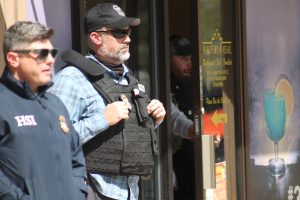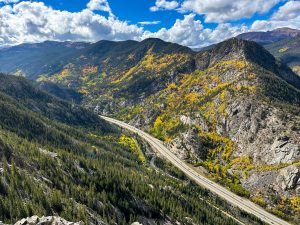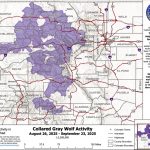‘There’s a human cost’: Colorado mountain towns see student absences, community tension in wake of growing ICE operations
A shuttered restaurant. Fewer students in classrooms. A confrontation with a local official. Here’s how federal immigration operations are impacting Colorado’s rural resort towns.
Summit Daily News
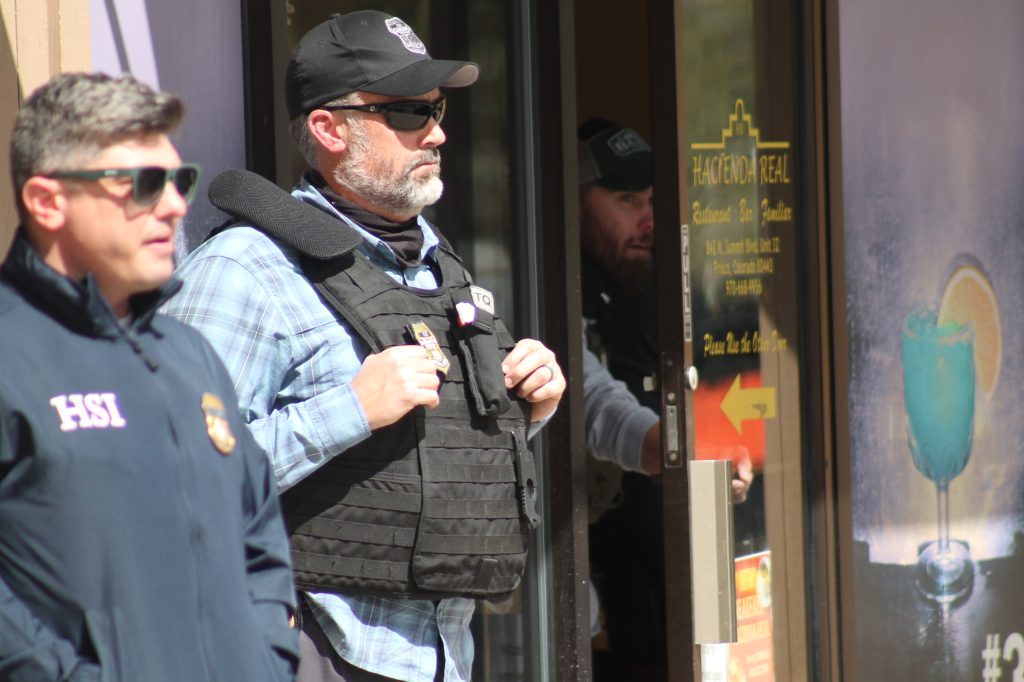
Cody Jones/Summit Daily News
Colorado mountain towns are grappling with the impacts of a wave of U.S. Immigration and Customs Enforcement operations.
Federal agents have detained dozens of individuals on the Western Slope this summer — although ICE has declined to provide information on exactly how many have been detained or the names of those it has taken into custody.
Meanwhile, rumors have swirled on social media, and community members have described an atmosphere of fear that has infiltrated workplaces and schools. Construction businesses have reported fewer workers showing up, and some school districts in the mountains have documented impacts to attendance as a result of ICE operations.
“There’s a human cost, as well as an economic cost, and it’s not just Latinos and Latinas who are impacted,” said Alex Sánchez, president and CEO for the Western Slope-based immigrant advocacy group Voces Unidas.
President Donald Trump’s administration has said that the immigration operations have targeted those with criminal records and only go after “the worst of the worst.” But the limited amount of ICE data that is publicly available paints a different picture.
In the mountains, the increasing number of federal immigration operations has led to tensions with the public. At times, ICE operations have seen pushback, with community members coordinating on social media to get the word out about active operations and sometimes showing up to shout at the federal agents. Others online have cheered on the immigration enforcement operations.
In Frisco, a crowd of at least 30 people gathered outside a popular Mexican restaurant to express their displeasure with federal agents while they executed a search warrant at the business earlier this month. Some of the onlookers stood in front of the agents’ vehicles as they tried to leave, others honked their horns and one person shouted, “These are hardworking people. Get out!”
Summit Daily News confirmed two workers were detained during the incident. The investigation forced the restaurant — which has been serving customers for more than two decades — to close unexpectedly.
Then this week, a Routt County Commissioner said she was “boxed in” by federal agents in vehicles who followed her to the post office in Oak Creek after she took a video of their operations.
Keeping up with the news is hard. Keep it simple with one weekly newsletter.
Sign up at SummitDaily.com/newsletter
“It’s a really scary time, and it’s sad that this is happening in our community,” Routt County Commissioner Angelica Salinas said in a video she posted about her interaction with ICE agents on Wednesday. “I have a very privileged position in our community, and I’m able to feel safe (in) a lot of places, as a Latina woman, where I go — but that’s not the case for everyone.”
Community impacts
Sánchez, the Voces Unidas CEO, knows the impact of deportation personally. His mother was deported to Mexico when Sánchez was a young child living in El Jebel, an unincorporated area roughly 20 miles north of Aspen, where his mother worked as a housekeeper.
The tight-woven nature of many rural resort towns means that those kinds of operations can have ripple effects beyond any one county and impact families that live and work up and down the mountain valleys, he said.
Cases in the U.S. of lawfully residing immigrants, including green card holders, also being detained have further stoked fear even among documented residents.
“What happens when you have operations is you have schools that sometimes have to shut down,” Sánchez said. “You have places of work, construction sites, restaurants, and hotels where you don’t have enough employees to keep those businesses open.”
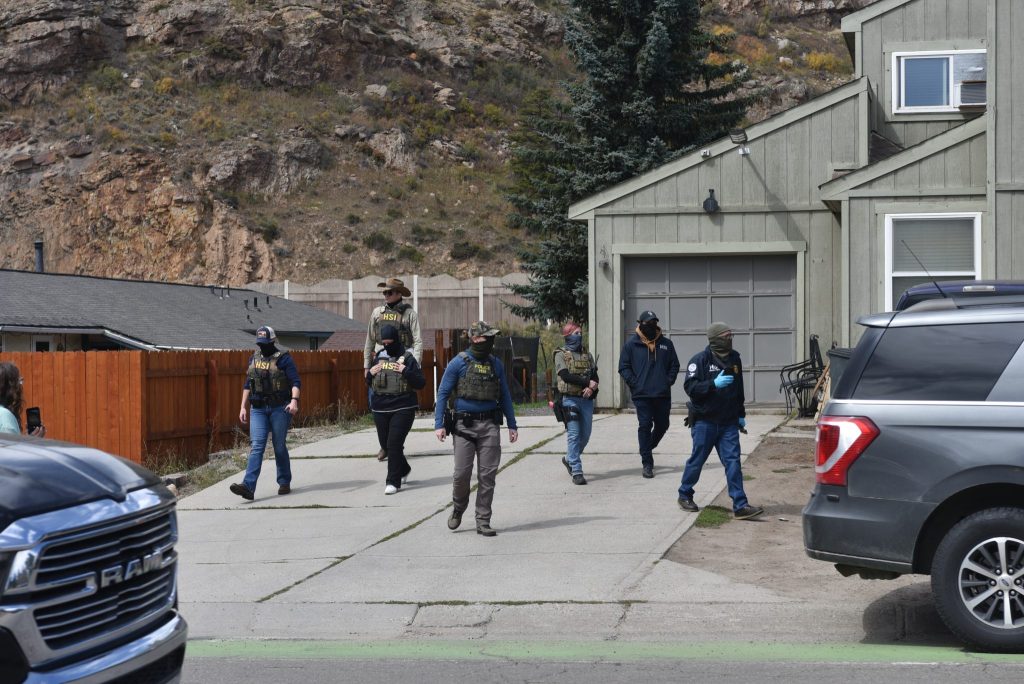
Summit School District Superintendent Tony Byrd, for example, said his schools saw a 35% drop in attendance lasting roughly two weeks following rumors of ICE presence in the county from the week of Sept. 8 and two U.S. Immigration and Customs Enforcement operations on Sept. 16, according to previous reporting by the Summit Daily.
During the Sept. 16 operations, which happened within a mile of Summit School District campuses, Byrd said more than 200 frightened students were “doing everything they could” to leave the school.
Rep. Meghan Lukens, a Steamboat Springs Democrat and chair of the state legislature’s House Education Committee, said in a written statement, “No one should ever fear that their family will be ripped apart while going to work or dropping their children off at school, but increased ICE activity on the Western Slope has done exactly that — leading to a decrease in school attendance.”
“Immigrants came here to give their families a better life, and that includes quality education for their children. As a teacher, I am deeply concerned that students are missing out on learning due to fear of a potential ICE raid,” Lukens continued.

A growing number of workers are also failing to show up to work or are leaving their jobs.
Between June 2024 and June 2025, Colorado lost roughly 5,100 construction jobs, according to a report by the Associated General Contractors. The trade group said part of that loss is likely linked to “stepped-up immigration crackdowns” and “ongoing slowdown” in worker pipelines.
Nearly 1 in 4 Colorado construction firms reported losing workers to federal immigration enforcement actions, the report found. Around 5% said their job site had been directly visited by immigration agents, and 7% said they’ve had workers leave their jobs or fail to appear for work because of “actual or rumored immigration actions.”
Advocacy group works to confirm, document ICE cases
Since January, Voces Unidas has worked to track ICE activity in mountain communities, fielding hundreds of calls made to its mainline and hotline phones, along with text messages containing tips from community members.
While the organization remains focused on its core mission of advocating for Latino and Latina interests, primarily through politics and policy, it has shifted its resources in recent months to become a rapid response network for ICE-related incidents. Sánchez said the group will be “bombarded” with hundreds of calls and messages when ICE activity is underway.
Voces Unidas has documented numerous suspected detainments of individuals, relying on a combination of crowd-sourced evidence like videos, information from public officials, discussions with detainees’ family members, and ICE’s own database. The group routinely posts information about incidents on its website and will issue alerts to communities when it has evidence that ICE activity may be imminent or ongoing.
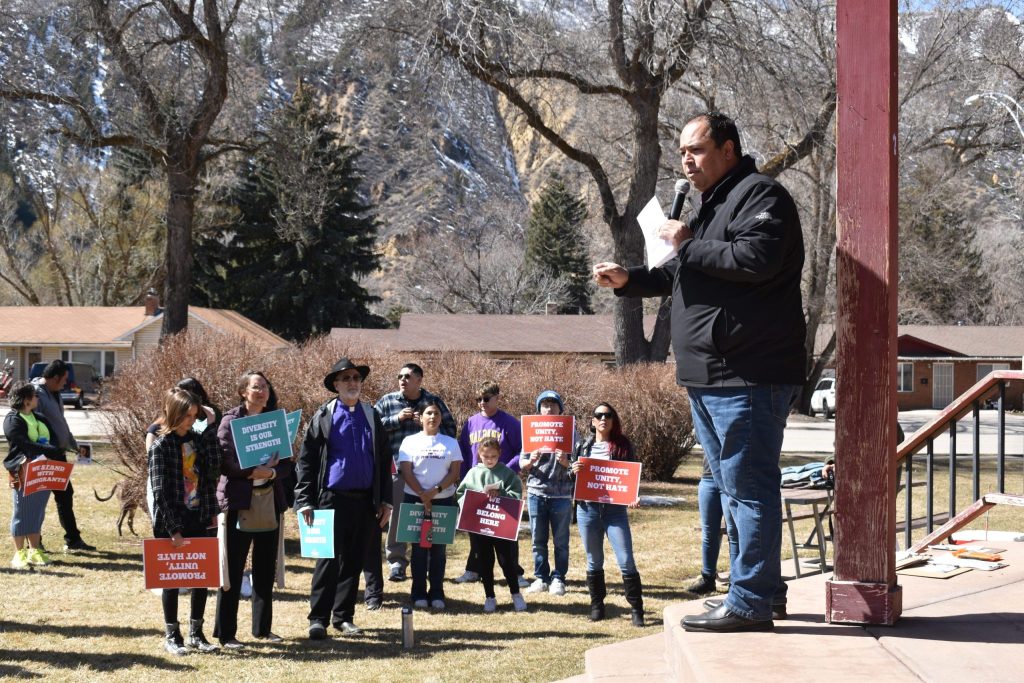
So far this year, Voces Unidas says it has confirmed that ICE has carried out detentions in counties including Summit, Lake, Grand, Eagle, Routt, Moffat, Pitkin, Garfield, Mesa, Chaffee, La Plata, Rio Blanco and Montrose. Media outlets have also independently confirmed ICE activity in all of those counties.
An unnamed spokesperson for the ICE Denver Field Office said in an email that the agency does not confirm, deny or discuss ongoing or future operations and will “publicly announce operation results when appropriate.”
Sánchez said his group isn’t seeing any one particular method for how ICE shows up in these communities, adding that the federal agency has deployed a range of tactics in the field. That includes appearing at people’s homes or places of work, pulling them over while driving, and making detainments at what appear to be random locations, like a gas station.
The ICE spokesperson declined to provide the number of people that federal agents have detained in Colorado mountain communities. The spokesperson said ICE will not provide any details on those it arrests or detains without a name and date of birth or an identification number.
“U.S. Immigrations and Customs Enforcement is executing its mission of identifying and removing criminal aliens and others who have violated our nation’s immigration laws,” the spokesperson said. “All aliens in violation of U.S. immigration law may be subject to arrest, detention and, if found removable by final order, removal from the United States, regardless of nationality.”
Sánchez said it’s hard to estimate how many people have been detained by ICE in the mountain region. While mountain towns have seen several public ICE operations with witnesses present, Sánchez said there’s likely been many more cases that have gone under the radar and are unreported.
Official ICE arrest data is murky. The University of California, Berkeley School of Law has compiled the clearest picture yet of ICE arrests using data it forced the agency to release, which it used to make the Deportation Data Project. The database has been analyzed by outlets like The Colorado Sun and The Denver Post, with the caveat that it is still imperfect.
Data for Colorado, for example, is included in arrests made within the jurisdiction of ICE’s Denver field office, which also includes Wyoming. Sometimes, it’s not always clear where an arrest took place. Still, an analysis by The Colorado Sun shows that most people arrested by ICE in Colorado from January to June of this year did not have any criminal convictions in the U.S..
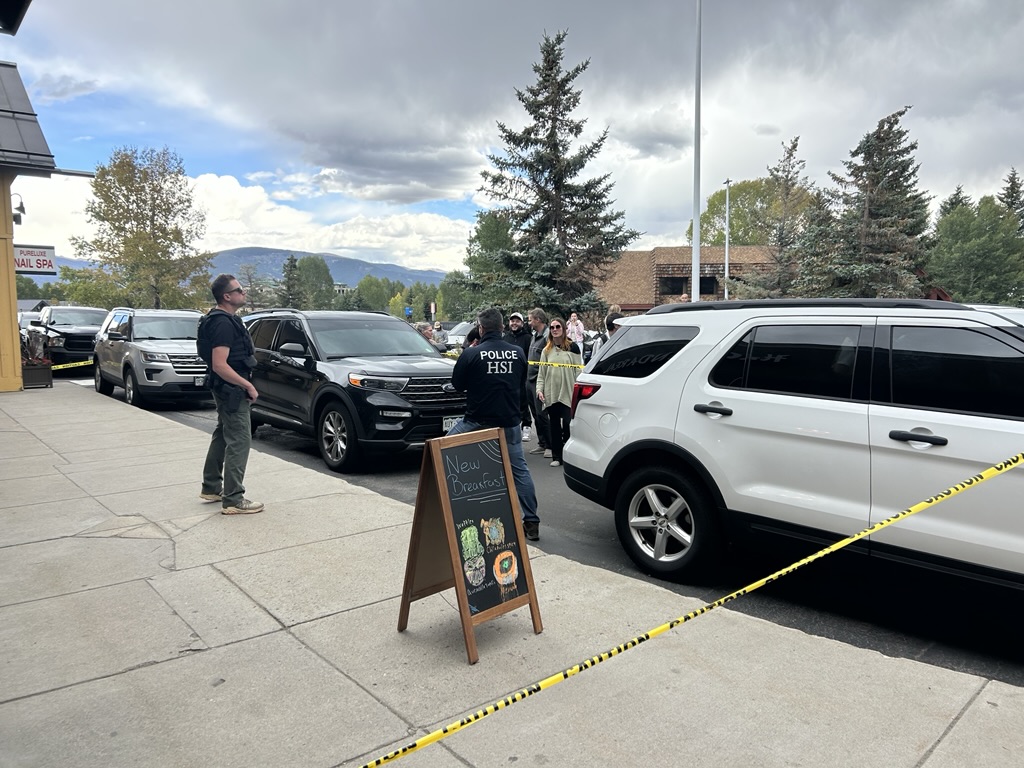
Sánchez said while the Trump administration’s stated goal is to “remove people who have committed awful crimes,” that is “not what the data is showing, and that’s not what the stories and testimonies that Voces Unidas is hearing about the people involved.”
Local officials have continued to say they are not participating in any of ICE’s operations. Colorado laws largely limit local and state government officials’ ability to work with ICE, unless it’s a situation where a valid criminal warrant has been issued. Federal agents are also restricted in some cases from carrying out operations in certain public spaces, like in and around state courthouses.
That doesn’t mean those incidents haven’t occurred.
In April, Ninth Judicial District Chief Judge John Neiley issued an order for ICE to stop carrying out civil immigration enforcement activities in or around state courthouses in Pitkin, Garfield and Rio Blanco counties, according to reporting by Colorado Public Radio.
Sánchez said the state needs better data on when and where ICE operations are occurring.
“The problem in Colorado is that no one is tracking these reports because there’s no centralized system to do so,” he said.
State lawmaker eyes more policies to protect immigrants
State Rep. Elizabeth Velasco, a Glenwood Springs Democrat who has championed several immigration-related measures at the Colorado Capitol, said there’s more the state can do to respond to federal immigration efforts.
While immigration is a federal issue, Velasco said states still have some power to be proactive and reactive to federal actions.
This year, Velasco was a lead sponsor of a major new law, Senate Bill 276, that, among other things, further limited local officials’ ability to share information with ICE in cases where a criminal warrant hasn’t been issued.
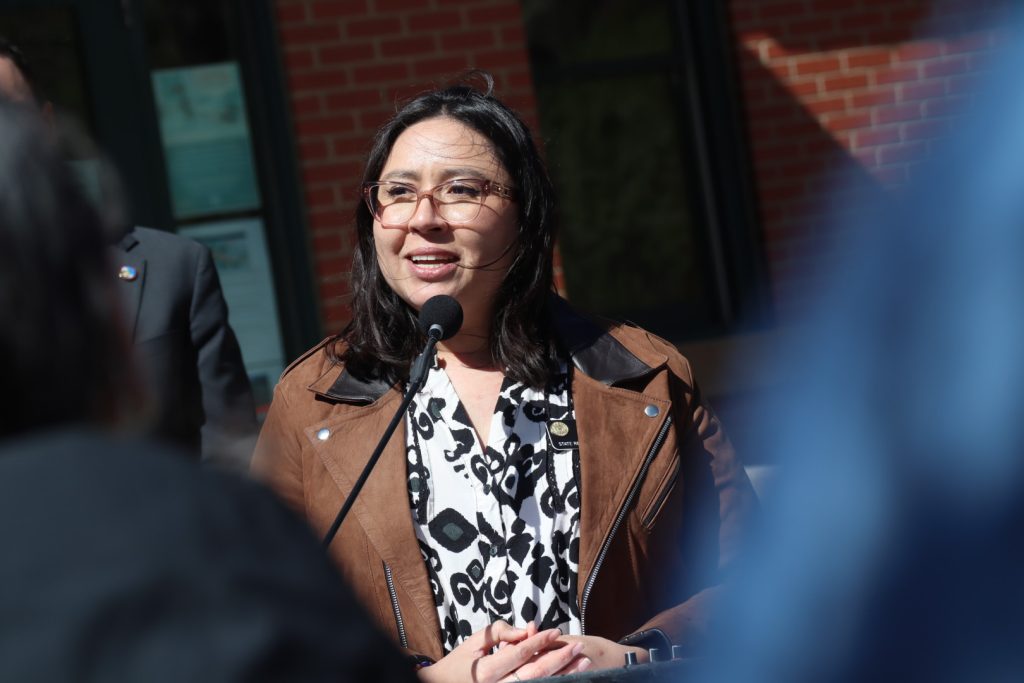
Velasco said she hopes to build on that work during the next legislative session, which will start in January, and is currently in the stakeholder process to develop new bill ideas. Those could include measures to bolster education and training of Colorado immigration law for local law enforcement.
She said that could help avoid situations like what happened earlier this year in Mesa County, where a sheriff’s deputy shared information with federal immigration officials that led to the arrest of a Utah college student who had an expired visa. Mesa County, in its legal battle with the Colorado Attorney General’s Office over the matter, argued that state immigration law was vague and contradictory.
Velasco is also interested in Colorado passing legislation that mimics California’s recent ban on ICE officers wearing masks, a measure that is likely to be entangled in legal challenges.
“I do think that the work is never-ending,” Velasco said. “I definitely want to encourage elected officials to listen, because this is a huge issue for the state and our communities.”

Support Local Journalism

Support Local Journalism
As a Summit Daily News reader, you make our work possible.
Summit Daily is embarking on a multiyear project to digitize its archives going back to 1989 and make them available to the public in partnership with the Colorado Historic Newspapers Collection. The full project is expected to cost about $165,000. All donations made in 2023 will go directly toward this project.
Every contribution, no matter the size, will make a difference.
